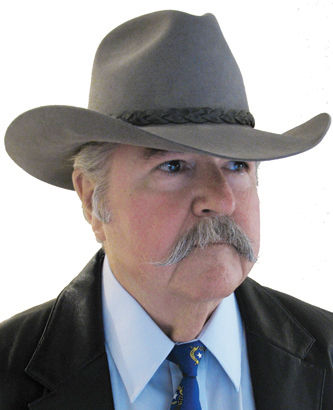 (Thomas Mitchell) – When your only tool is a hammer, every problem is a nail.
(Thomas Mitchell) – When your only tool is a hammer, every problem is a nail.
With lawyers, the solution to every problem is a lawsuit.
A bill to drastically alter Nevada’s strong anti-SLAPP law (Strategic Lawsuit Against Public Participation) breezed through the state Senate, where never was heard a disparaging word. The only testimony in the Senate Judiciary Committee was from a California attorney who helped draft the bill on behalf of Wynn Resorts, whose owner over the years has filed a few defamation suits against those who commented about him in a manner he did not like.
The Assembly recently heard nearly three hours of testimony for and against Senate Bill 444.
California attorney Mitchell Langberg and Senate Judiciary Chair Greg Brower said the bill restores balance to the state anti-SLAPP law because a 2013 revision went too far in favor of defendants. They argued that those who have been defamed now face too great a burden to prove their case. Under the current law a plaintiff must show clear and convincing evidence of their claims. SB444 lowers the standard of proof to prima facie evidence and repeals a provision that awards $10,000 to successful defendants.
Langberg at one point seemed to imply that the only recourse for a person who had been falsely accused — in an Internet business review for example — was vindication by a jury. Can’t people effectively counter false speech with truthful speech?
Langberg recently had a defamation case brought by Steve Wynn in California dismissed because of that state’s anti-SLAPP law, which is not as strong as Nevada’s.
Langberg made a point of noting that the Nevada Constitution guarantees freedom of speech but also says people are responsible for the abuse of that right.
Article 1, Section 9 says: “Every citizen may freely speak, write and publish his sentiments on all subjects being responsible for the abuse of that right; and no law shall be passed to restrain or abridge the liberty of speech or of the press. In all criminal prosecutions and civil actions for libels, the truth may be given in evidence to the Jury; and if it shall appear to the Jury that the matter charged as libelous is true and was published with good motives and for justifiable ends, the party shall be acquitted or exonerated.”
Truth is a defense, but SB444 deletes a section of the current law that declares immune from litigation a communication “which is truthful or is made without knowledge of its falsehood.”
Both Trevor Hayes, a former newspaper business writer and now an attorney representing the Nevada Press Association, and John L. Smith, a longtime Las Vegas columnist and biographer, both testified the proposed change to the anti-SLAPP law could have a chilling effect on reporting and commentary across all media. Hayes noted that newspapers today are far less profitable and a major consideration before publishing a story would be whether it could cost the paper hundreds of thousands of dollars in litigation.
Before Nevada passed its anti-SLAPP law that awards court costs and attorney fees to successful defendants, Smith and his publisher were sued over an advertisement for a book about Wynn. The Nevada Supreme Court eventually dismissed the suit, but not before the publisher went bankrupt. Smith was denied any costs and attorney fees.
Attorney Marc Randazza, who helped draft the current law, said he would have no problem acting as an attorney for a person who believes he or she has been defamed, despite Nevada’s strong anti-SLAPP law, because he does his homework and makes sure he has the evidence.
“Frankly, I do get calls, frequently, from people who ask me, ‘Won’t you just file it? I know we don’t have much chance of winning, but we’ll drag these guys into discovery and they don’t want that,’” Randazza said. “When that happens I do hear the cash register ringing in my ears. And I think I could keep this case going for 18 months or so. I don’t use my law license that way. I won’t do it, because I believe in freedom of expression and I don’t believe in bullying people with lawsuits designed to suppress their First Amendment rights.”
The Assembly should bury this misbegotten and mischievous attempt to weaken Nevada’s law on free speech.
A version of this column was published at Mr. Mitchell’s blog.
Mr. Mitchell publishes the 4TH ST8 Blog at www.4thst8.wordpress.com.


Facebook
Twitter
Pinterest
RSS